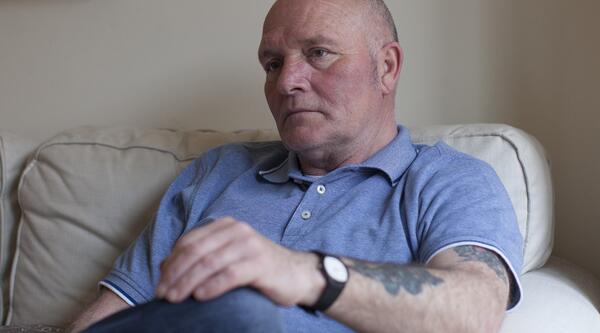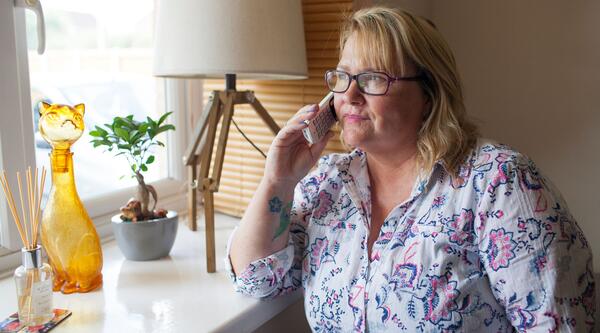Over half of UK adults don’t know one of the most common symptoms of dementia
As one in three people living with dementia in the UK remain undiagnosed, we highlight the six key symptoms to look out for.
During Dementia Action Week we are shining a light on the six most common symptoms of dementia and encouraging people to seek help if they spot these signs in themselves or a loved one.
One in ten could not name any common dementia symptoms
Around one million people are living with dementia in the UK and a third do not have a diagnosis. Yet, our research reveals that over 60% of UK adults do not know that problems with vision can sometimes be a symptom of dementia – and one in ten could not name a single common symptom of dementia.
As well as causing problems with memory and thinking, dementia can also damage the parts of the brain involved in processing information from the eyes. This can cause problems judging distances, making out objects, or reading large font text. People may also misinterpret patterns or reflections.
The survey also found that less than two-thirds of respondents identified that problems with communication (61%) or mood changes (64%) could also be symptoms of dementia.
My wife's vision problems were a symptom of Alzheimer's disease
Steve Howe (60), from Darlington, whose wife Leigh (67) has Alzheimer’s disease, spoke about the importance of recognising all the symptoms of dementia, including sight loss.
Steve says, "Leigh started experiencing vision problems when she was just 57.
"Some days her eyesight was fine, and others she couldn’t see at all. It took over three years and a serious accident before we received a diagnosis of Alzheimer's disease.
"By then, the condition had likely been developing for around eight years, and we missed the opportunity to use treatments that could have helped slow its progress.
It's crucial that people understand vision loss can be a symptom of dementia, as early diagnosis is key to getting the support and treatments that can make a real difference.
“Since Leigh’s diagnosis, I’ve been committed to raising awareness and supporting Alzheimer’s Society, particularly through our local golf club’s fundraising efforts.
"It’s been heartening to see how the community has rallied around us, and it’s given me hope that we can make a difference for others facing similar challenges."

Steve and his wife Leigh
Corinne Mills, Interim CEO of Alzheimer’s Society said:
"This Dementia Action Week, we’re highlighting the six most common symptoms of dementia and encouraging anyone with concerns to use our free symptom checklist and seek help from their GP or other health professional.
"More than a third of people with dementia don’t have a diagnosis, meaning they’re missing out on the vital care, support and treatment they need. But it doesn’t have to be this way. We understand that getting a diagnosis can be daunting, but we believe it’s better to know.
Our research shows that 97% of people affected by dementia saw a benefit in getting a diagnosis. An early and accurate diagnosis helps people to live independently for longer, access existing treatments, and can prevent crisis situations. It also allows people to better understand their condition and plan for their future.
The six most common symptoms of dementia
Dementia is not a natural part of ageing. The six most common symptoms of dementia include:
- Memory loss – problems recalling things that happened recently
- Difficulty organising thoughts – struggling to make decisions, solve problems or follow steps
- Problems using words or communicating – difficulties following conversations or struggling to find the right words
- Problems with vision – problems judging distances or perceiving object edges
- Getting confused about time or place – losing track of the time or date, or becoming confused about where they are
- Changes in mood or personality – becoming unusually anxious, irritable, or withdrawn.
Finding the reason for any changes can help those living with dementia get the right information, treatment and support.
It also helps people and those around them to understand the changes they are experiencing and maximise the time together with loved ones.
It also allows people to plan by putting in place lasting power of attorney, exploring care options, managing finances and accessing any benefits they may be entitled to.
Check your symptoms or get support
If you’re worried about yourself or someone close to you, use our symptoms checklist or call the Dementia Support Line on 0333 150 3456.





